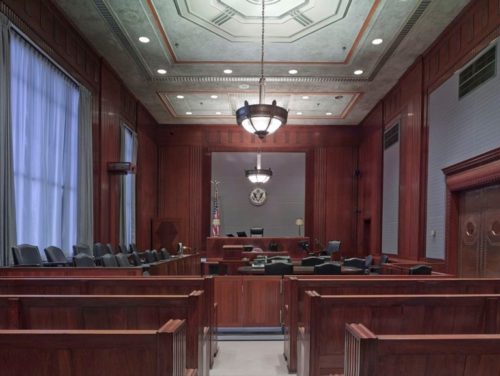
If you’re about to have your day in court or you’re about to serve as a juror for the first time, you may be curious to know more about jury trials in NJ. You may have some preconceived notions about how jury trials work from watching TV and movies. However, there’s always a few fine lines between fact and fiction. If you appear before a jury, it’s essential to have a solid idea of how a jury trial works. Jury trials in NJ operate much like jury trials in other states. Of course, there’s always a few policies and procedures that are specific to the state in which the trial is being carried out.
For instance, in New Jersey, not all cases are heard by juries. A judge may decide someone’s fate with evidence alone and without the assistance of a jury. These and other facts can help to provide a better understanding of what jury trials. Here’s a list of 10 facts that help explain jury trials in NJ.
10 Facts About Jury Trials in NJ
1. As mentioned above, not all cases are heard by juries. A judge may decide a case alone in certain civil cases such as (1) family matters, such as divorce, adoption, or custody hearings, (2) Tenant/landlord disputes, (3) collections issues, (4) DWI’s or other municipal court cases where no injuries took place, (5) juvenile court issues, (6) workers compensation cases, (7) probate or chancery cases.
2. Jurors will always be used for criminal cases on both federal and state levels. As you may have heard mentioned in both real life and film, in any criminal matter, “a defendant has a right to a trial by jury.”
3. Jurors may be used for certain civil cases in New Jersey. These sorts of lawsuits may include (1) slip and fall cases, (2) wrongful death cases, (3) medical malpractice lawsuits, (4) car, bus, or truck accidents, (5) liability cases (involving both premises liability and product liability).
4. It doesn’t matter if the trial is civil or criminal, the role of the juror doesn’t change. Jurors are there to review the evidence presented and listen to all of the information provided by the courts in both types of trials. At the end of both types of trials, the jury will deliver a verdict.
5. Since a jury trial in NJ is intended to provide a judgment of your peers, jurors will be selected from your particular jurisdiction. In other words, a jury will be a collection of citizens in your area.
6. Representing attorneys will go through a process called voir dire. This is when they ask prospective jurors questions about their backgrounds to find any potential biases that could sway the verdict. They’re looking for jurors that can act without prejudice toward the particular crime or towards the defendant. After the representing attorneys make their selections, the judge will ask further questions to the potential jury members to assure there are no biases throughout the trial.
7. There will be a total of six jurors in civil jury trials in NJ to observe and review the evidence presented.
8. There will be a total of twelve jurors in criminal jury trials in NJ to observe and review the evidence presented. In most cases, two more jurors will be selected as alternates for emergency situations.
9. Jurors must follow a set of rules to make sure the trial is carried out fairly and justly. For instance, jurors are not permitted to talk to about the case, the evidence, or the parties involved with other jurors or people outside of the trial while the trial is still ongoing. Jurors shouldn’t talk about the case with the attorneys working the case or any other attorney. The judge may also instruct the jurors to not listen to the news media, such as radio or television news, to avoid being influenced by outsiders’ opinions.
10. It’s important to know that jurors are not law professionals or experts. They are randomly selected by your state’s government. Because of this, a judge will address the jury at the end of the trial to discuss the laws involved in the criminal or civil case. This helps the jury to deliberate at the end of the trial with full knowledge of law pertaining to the case at hand.
For More Information About Jury Trials in NJ
If you’re about to face a jury for the first time, you should have a lawyer there to represent you. Unless you’re a lawyer, it’s never recommended to represent yourself in criminal or civil jury trials. If you’d like to know more about how jury trials work in New Jersey, contact a trusted law office today. A criminal defense attorney can help you gain a better understanding of your case, how to behave in a jury trial, and how to present your best defense. Contact a criminal defense attorney in New Jersey today.

